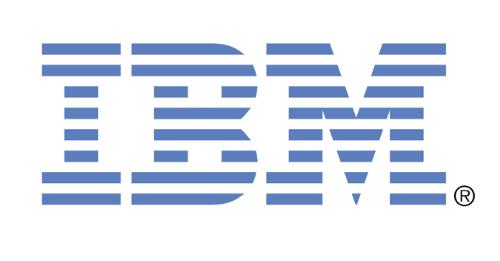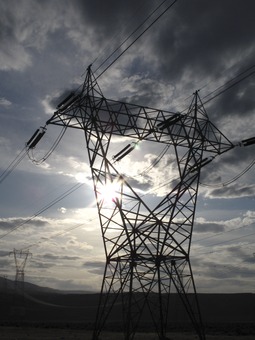cybersecurity
See the following -
House Committee Approves FITARA, FISMA Update
David Stegon | FedScoop | March 21, 2013
The House Oversight and Government Reform Committee approved two bills on Wednesday that could have lasting effects on the federal information technology community if made into law. Read More »
- Login to post comments
House Committee Demands Answers From CTO Megan Smith And HHS On Healthcare.Gov Data Mining
Jack Moore | Nextgov.com | January 30, 2015
The head of the House Space, Science and Technology Committee says he might call U.S. Chief Technology Officer Megan Smith to testify about potential HealthCare.gov consumer privacy gaps...
- Login to post comments
How Cyber Hardening Can Protect Patient Privacy And Treatment
By Lisa Silverman | November 29, 2018
 The abundance of internet-connected devices that collect and share patient data has greatly increased the “attack surface” (where an attacker inserts or extracts data) and number of possible vulnerabilities within a system. Now that medical devices can connect to home-based routers, public Wi-Fi or cellular networks to relay data to hospitals, specialists, and care providers. In addition, the software in those devices lacks cybersecurity and can be updated and reprogrammed remotely. Thus, sensitive patient information is even more prone to data breaches, and the safety of the devices can be compromised. Recent supply chain compromises, and the migration of health applications and platforms to the cloud, also add to the threat equation. This article looks at why the medical community is so vulnerable and suggests how it can better protect life-saving equipment and sensitive data from unprecedented cyberattacks.
The abundance of internet-connected devices that collect and share patient data has greatly increased the “attack surface” (where an attacker inserts or extracts data) and number of possible vulnerabilities within a system. Now that medical devices can connect to home-based routers, public Wi-Fi or cellular networks to relay data to hospitals, specialists, and care providers. In addition, the software in those devices lacks cybersecurity and can be updated and reprogrammed remotely. Thus, sensitive patient information is even more prone to data breaches, and the safety of the devices can be compromised. Recent supply chain compromises, and the migration of health applications and platforms to the cloud, also add to the threat equation. This article looks at why the medical community is so vulnerable and suggests how it can better protect life-saving equipment and sensitive data from unprecedented cyberattacks.
- Login to post comments
How DOD Embraced Bug Bounties -- And How Your Agency Can, Too
Sarah Lai Stirland | FCW | October 24, 2016
It was a Tuesday in April, and Mark Litchfield was poking around the Defense Department's Defense Video Imagery Distribution System, looking for security holes. It didn't take him long to find one. He soon uncovered a vulnerability known as a blind persistent cross-site script. It could enable any maliciously minded hacker to log in as a site administrator and broadcast whatever content he or she wanted from the DVIDS website -- which is the primary way the U.S. military keeps the public informed about its activities around the world...
- Login to post comments
How Healthcare.gov Could Be Hacked
Dana Liebelson | Mother Jones | October 24, 2013
Security experts say the federal health insurance website is vulnerable to a common technique that hackers use to steal personal information. Read More »
- Login to post comments
How Open Source Hardware Increases Cybersecurity
By Joshua Pearce | October 31, 2018
 Hardware hacks are particularly scary because they trump any software security safeguards-for example, they can render all accounts on a server password-less. Fortunately, we can benefit from what the software industry has learned from decades of fighting prolific software hackers: Using open source techniques can, perhaps counterintuitively, make a system more secure. Open source hardware and distributed manufacturing can provide protection from future attacks...security is one of the core benefits of open source. While open source is not inherently more secure, it allows you to verify security yourself (or pay someone more qualified to do so). With closed source programs, you must trust, without verification, that a program works properly.
Hardware hacks are particularly scary because they trump any software security safeguards-for example, they can render all accounts on a server password-less. Fortunately, we can benefit from what the software industry has learned from decades of fighting prolific software hackers: Using open source techniques can, perhaps counterintuitively, make a system more secure. Open source hardware and distributed manufacturing can provide protection from future attacks...security is one of the core benefits of open source. While open source is not inherently more secure, it allows you to verify security yourself (or pay someone more qualified to do so). With closed source programs, you must trust, without verification, that a program works properly.
- Login to post comments
How Secure Is Our Smart Grid?
Dan Lohrmann | Government Teachnology | February 26, 2017
Over the past several months, alarm bells have been going off regarding potential attacks against the U.S. electrical grid...In the [Department of Energy’s] landmark Quadrennial Energy Review, it warned that a widespread power outage caused by a cyberattack could undermine 'critical defense infrastructure' as well as much of the economy and place at risk the health and safety of millions of citizens. The report comes amid increased concern over cybersecurity risks as U.S. intelligence agencies say Russian hacking was aimed at influencing the 2016 presidential election”...
- Login to post comments
How the Government's 2013 Tech Policy Agenda Will Impact IT
Kenneth Corbin | CIO | January 14, 2013
From cybersecurity to privacy, mobile broadband to net neutrality, the coming year in Washington promises to be a busy one for the technology sector. Read More »
- Login to post comments
How This Open Source Security Tool Halted Significant DDos Attacks
By Philippe Humeau | January 1, 2021
 In 2020, our ways of living and working were turned completely upside down in a matter of days. As COVID-19 began to spread across the globe, we brought our companies home, and staying connected to our colleagues, friends, and family online became a critical necessity. This opened the door for hackers to cause disruption; for example, distributed denial of service (DDoS) attacks around the world were up 151% in the first half of the year, according to Neustar.
In 2020, our ways of living and working were turned completely upside down in a matter of days. As COVID-19 began to spread across the globe, we brought our companies home, and staying connected to our colleagues, friends, and family online became a critical necessity. This opened the door for hackers to cause disruption; for example, distributed denial of service (DDoS) attacks around the world were up 151% in the first half of the year, according to Neustar.
- Login to post comments
IBM & Ponemon Institute Study: Data Breach Costs Rising, Now $4 million per Incident
Press Release |
IBM Security, Ponemon Institute |
June 15, 2016
 IBM Security today announced the results of a global study analyzing the financial impact of data breaches to a company's bottom line. Sponsored by IBM and conducted by the Ponemon Institute, the study found that the average cost of a data breach for companies surveyed has grown to $4 million, representing a 29 percent increase since 2013...
IBM Security today announced the results of a global study analyzing the financial impact of data breaches to a company's bottom line. Sponsored by IBM and conducted by the Ponemon Institute, the study found that the average cost of a data breach for companies surveyed has grown to $4 million, representing a 29 percent increase since 2013...
- Login to post comments
If You Think Cybersecurity Is 'Just An IT Problem,' Prepare To Get Owned
Frank Konkel | Nextgov.com | June 9, 2014
Steven Chabinsky recently painted a detailed portrait of today’s evolving cybersecurity threat landscape. It’s not pretty...
- Login to post comments
Industry Group Warns of Bleakest IT Budget in 17 Years
Emily Kopp | Federal News Radio | October 18, 2011
The government's IT budget hasn't been squeezed this hard since Forrest Gump was on the big screen in 1994, according to an industry group survey. Civilian agencies will spend $42.7 billion on technology in fiscal 2012, and see an increase of two percent to $46.8 billion by 2017. Read More »
- Login to post comments
Investigation: US Power Grid Vulnerable to Foreign Hacks
Garance Burke and Jonathan Fahey | Phys.org | December 21, 2015
 Security researcher Brian Wallace was on the trail of hackers who had snatched a California university's housing files when he stumbled into a larger nightmare: Cyberattackers had opened a pathway into the networks running the United States power grid. Digital clues pointed to Iranian hackers. And Wallace found that they had already taken passwords, as well as engineering drawings of dozens of power plants, at least one with the title "Mission Critical." The drawings were so detailed that experts say skilled attackers could have used them, along with other tools and malicious code, to knock out electricity flowing to millions of homes...
Security researcher Brian Wallace was on the trail of hackers who had snatched a California university's housing files when he stumbled into a larger nightmare: Cyberattackers had opened a pathway into the networks running the United States power grid. Digital clues pointed to Iranian hackers. And Wallace found that they had already taken passwords, as well as engineering drawings of dozens of power plants, at least one with the title "Mission Critical." The drawings were so detailed that experts say skilled attackers could have used them, along with other tools and malicious code, to knock out electricity flowing to millions of homes...
- Login to post comments
IoT Botnets Are Growing—and Up for Hire
Jamie Condliffe | MIT Technology Review | November 30, 2016
The army of Internet-connected devices being corralled and controlled to take down online services is active, growing—and up for grabs. Internet of things botnets—collections of devices hacked to work with one another to send debilitating surges of data to servers—have been blamed for several recent Internet failures. Most notably, the servers of domain name system host Dyn were taken down last month, affecting connectivity across large swaths of the East Coast of the U.S...
- Login to post comments
Is There Any Part of Government That Hasn't Been Hacked Yet?
Frank Konkel | Nextgov.com | September 10, 2014
Cybersecurity has been touted by the Obama administration as one of its top technology priorities over the past several years, but heightened visibility alone has done little to deter adversaries that include state-sponsored hackers, hackers for hire, cyber syndicates and terrorists...
- Login to post comments